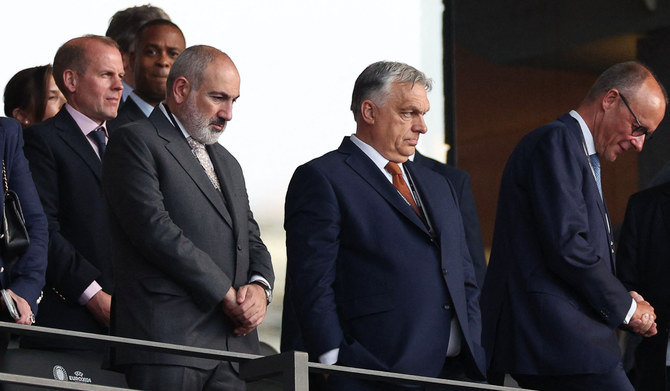BUDAPEST, Hungary: Top EU officials will boycott informal meetings hosted by Hungary while the country has the EU’s rotating presidency, after Hungary’s pro-Russian Prime Minister Viktor Orban held a series of rogue meetings with foreign leaders about Ukraine that angered European partners.
The highly unusual decision to have the European Commission president and other top officials of the body boycott the meetings was made ‘’in light of recent developments marking the start of the Hungarian (EU) presidency,” commission spokesperson Eric Mamer posted Monday on X.
Hungary took over the rotating role July 1, and since then Orban has visited Ukraine, Russia, Azerbaijan, China, and the United States on a world tour he’s touted as “peace mission” aimed at brokering an end to Russia’s war in Ukraine. That angered many leaders in the EU, who said they had not been informed in advance of Orbán’s plans. Orban’s government is friendly with Russia and has gone against the policy of most EU countries on support for Ukraine.
Hungary’s Europe minister, Janos Boka, lashed out at the commission’s decision saying the body ‘’cannot cherry pick institutions and member states it wants to cooperate with. ‘’
The decision by the European Commission applies to informal meetings hosted by Hungary. Senior civil servants will attend instead of top officials like the European Commission president, currently Ursula von der Leyen.
Orbán’s government has gone against the policy of most EU countries by refusing to supply Kyiv with weapons to deter Russia’s invasion and by threatening to block financial assistance to the war-ravaged country.
The long-serving prime minister’s visits to Moscow and Beijing, where he held talks with leaders Vladimir Putin and Xi Jinping, angered his EU counterparts, who said they had not been informed in advance. They rushed to clarify that Orbán — whose country is currently filling the bloc’s six-month rotating presidency — was not acting on behalf of the EU.
In an interview with Hungarian newspaper Magyar Nemzet on Monday, Orbán’s political director said the prime minister had briefed the leaders of other EU countries “in writing about the negotiations, the experiences of the first phase of the peace mission and the Hungarian proposals.”
“If Europe wants peace and wants to have a decisive say in settling the war and ending the bloodshed, it must now work out and implement a change of direction,” said Balázs Orbán, who is not related to the premier. “A realistic assessment of the situation, realistic goals and the right timing — that’s our approach.”
Hungary’s government has long argued for an immediate ceasefire and peace negotiations in the conflict in Ukraine, but has not outlined what such moves might mean for the country’s territorial integrity and future security. It has exhibited an adversarial posture toward Ukraine while maintaining close ties to Moscow, even after its full-scale invasion in Feb. 2022.
Orbán’s critics have accused him of acting against the unity and interests of the EU and NATO, of which Hungary is a member, and of pursuing an “appeasement” strategy concerning Russia’s aggression.
Following Orbán’s unannounced trip to Moscow for talks with Putin on July 5 — the first such visit from an EU head of state or government in more than two years — von der Leyen accused him of trying to mollify the Russian leader, writing on X: “Appeasement will not stop Putin. Only unity and determination will pave the path to a comprehensive, just and lasting peace in Ukraine.”




























